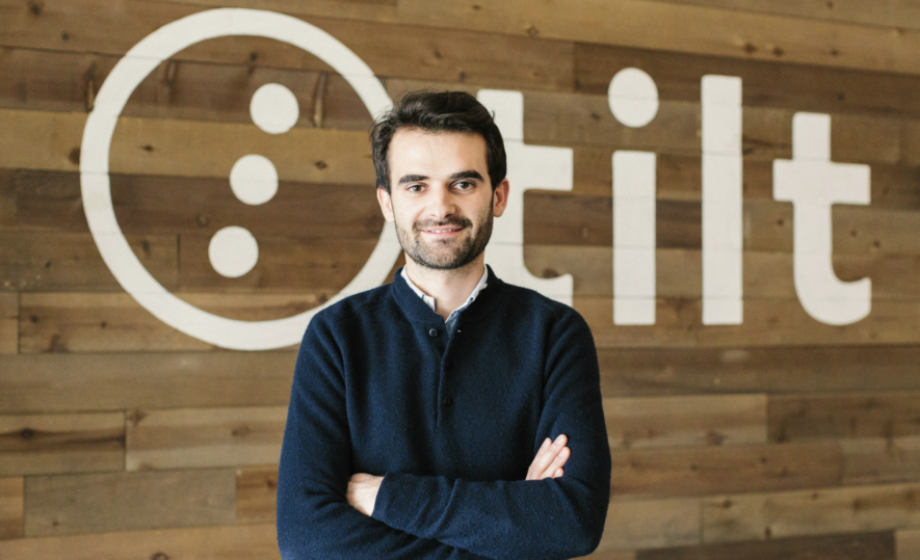
Olivier Buffon – Country Manager UK & France
Launched out of Y Combinator in 2012, Tilt is a simple solution to allow group payments of everything from small bar tabs to big projects.
Now the company has launched its service in France to tackle a market where it faces some local competition in the form of different crowdfunding solutions like Leetchi or Ulule.
Backed by investors such as Sean Parker (founder of Napster and historical investors of Facebook) and VC firm Andreessen Horowitz, San Francisco-based Tilt has raised a total of $70 million since its creation, including a $30 million round last year to expand internationally.
Tilt is a mobile social platform
The concept is pretty simple, the user opens a money pot and invites his friends to pitch in. Once the campaign reaches its minimum goal, contributors are charged and the funds are sent to the organizer.
Campaigns can be shared privately or publicly. It’s handy for various types of group expenses, from daily uses like sharing a lunch bill or a taxi ride, special occasions like buying a birthday gift, to bigger projects such as organizing an event. One of the biggest campaigns on Tilt was raising funds for the Jamaican bobsleigh team to compete at Sochi’s Winter Olympics in 2014.
The main advantage of the service is its user experience. Beyond the simple online money pot, Tilt is a social platform with a mobile-oriented experience. The app’s homepage is basically a social feed allowing the user to follow his friends’ and users from all around the world’s projects, and contribute to them in just a few clicks. This engaging and viral mobile experience has driven a lot of app downloads, making Tilt the crowdfunding app with the fastest growth today.
“The fact that it’s mobile, simple and social makes Tilt an app to use in a recurring way,” said Olivier Buffon, Country Manager UK & France.

More than 500,000 groups of people have already used Tilt, and a new contribution is made every 15 seconds through the app.
A significant advantage for Tilt is that the startup doesn’t take any commissions on the contributions users make or on the final amount they raise, compared to some of their competitors taking commissions up to 4 percent. The business model is based on a merchant feature allowing the users to sell products or event tickets and where the company takes a 2.5 percent commission on each ticket. Recently, American music group The Chainsmokers has used Tilt to finance the first fan-sourced US tour. They challenged 60 different universities around the country to pre-sell 800 tickets and performed in the 6 first campuses to reach the goal; all the tickets have been pre-sold in less that 2 hours.
Tilt is particularly hot among college students in the US, and it is growing 41 percent month over month on college campuses: “Our solution is ideal for students, they have more needs for group payments than any other segments. Whether it is for their shared apartments or their outings with friends”. The service is already by students, including groups from ESSEC or HEC, the two top business schools in the country.
France is very receptive to crowdfunding
France seems like a sitting duck for Tilt after its successful international launches in Canada, Australia, Scandinavia, and UK. “Since our launch in France, we’re surprised how people are welcoming the app. It’s the country with the most rapid growth so far, it’s really encouraging for us. One of the reasons why we wanted to launch in France, is because among the countries we analyzed, France seemed the most advanced in its understanding of crowdfunding concepts”, told us Olivier Buffon.
In France, the average Tilt is €180 with at least 7 contributors and the more people use the app, the more they are willing to crowdsource bigger amounts.
It might be because French people have been introduced to these uses by Tilt local competitors, but people here are particularly receptive to the app : “French people seems to understand the app in a few seconds, they’re more familiar with the concept of crowdfunding and money pot. Maybe it’s because some actors are already present in France, or a simple consequence of the media’s coverage of crowdfunding. There is no psychological barrier for them to use this type of product.”

